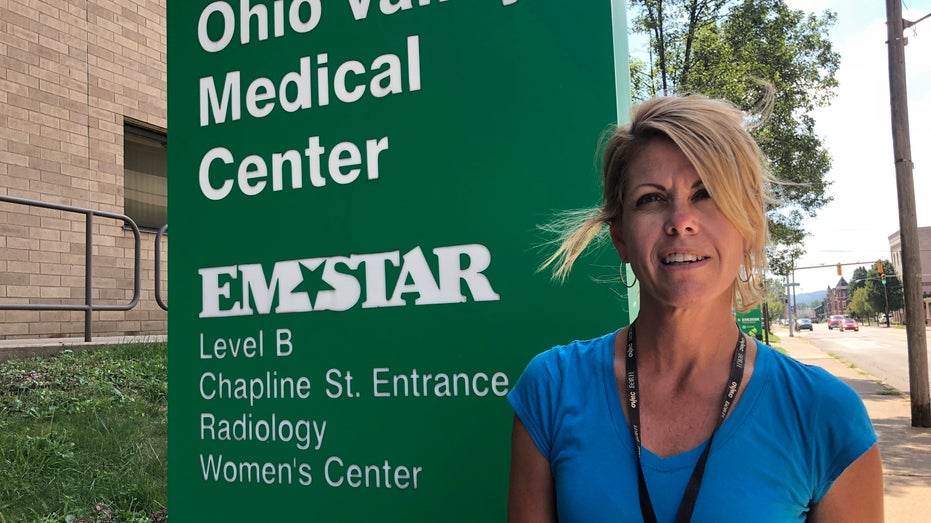Rust Belt hospital closings: More than 1,000 employees face uncertain future
More than 1,000 hospital employees in the struggling Rust Belt face uncertain futures as Ohio Valley Medical Center in Wheeling, West Virginia, and East Ohio Regional Hospital in nearby Martins Ferry, Ohio, are set to close by October.
Hospital employees like psychiatric unit activity therapist Carrie Jones say the hospital closings will leave locals high and dry.
"Where are they going to go?" Jones said of her psychiatric patients. "We're honestly like their family."
But after two years of ownership, Irvine, California-based Alecto Healthcare Services announced in August that both hospitals will close. The company cited several factors, including losses of more than $37 million since taking over, increasing facility improvement needs and the lack of a potential partner or buyer, including a cross-town hospital.

Ohio Valley Medical Center employee Carrie Jones is shown Tuesday, Sept. 3, 2019, outside of the hospital in Wheeling, W.Va. (AP Photo/John Raby)
Acute and emergency admissions were suspended Wednesday night at OVMC, where workers held an emotional candlelight vigil just before midnight.
A block away from OVMC, the 166-year-old Centre Market District is filled with restaurants and shops that cater to hospital workers and patients' families. Some business owners said they will be affected by the hospital closing but are prepared to handle it.
A few miles east, Wheeling Hospital is one of the state’s top 10 private employers. In Ohio, three of Belmont County’s top employers are hospitals. Doctors who work at the two hospitals will be forced to go elsewhere.
West Virginia Department of Health and Human Resources spokeswoman Allison Adler said DHHR staff and Gov. Jim Justice have "been striving to ensure that as OVMC leaves the Wheeling market, there is no lapse of quality care for those patients transferred to other facilities, and that services provided by OVMC remain available in the community."
Alecto's decision to close the hospitals comes as some in the medical community are pushing back against the idea that hospital mergers are always a solution to cut costs and ultimately keep facilities open.
More than 2,500 hospitals were involved in mergers or takeovers between 2000 and 2015, but in most cases, the deals did not result in significant savings, according to a review by the UCLA Anderson School of Management published in 2018.
Meanwhile, the hospital industry is worried about lawmakers' new push to crack down on surprise billing, when patients are unknowingly left on the hook for tens of thousands of dollars if, for example, they visited an in-network facility but received care from an out-of-network clinician like an anesthesiologist.
CLICK HERE TO READ MORE ON FOX BUSINESS
The Associated Press contributed to this report.




















